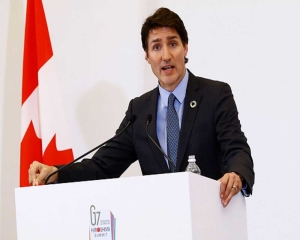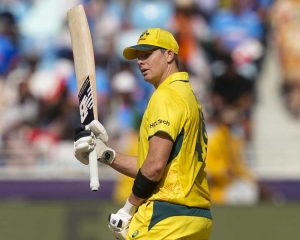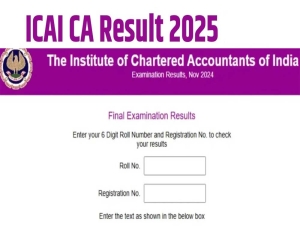Diabetes has almost taken on the proportion of an epidemic in the country. On the occasion of World Diabetes Day on November 14, experts tell Sakshi Sharma about the practicalities, implications and the role of technology in diabetes reversal
Diabetes, a lifestyle disease, has been regarded as an incurable and chronic ailment which requires lifelong management through medication and insulin, till now. Only a few people are aware that it is curable.
A recent concept called Diabetes Reversal means that people with type 2 diabetes (when your body cells are not able to respond to insulin the way they should) are able to regulate the disease by changing their lifestyle or food patterns without taking medication. This is also known as putting diabetes into remission.
Dr Anoop Misra, chairman, Fortis C-DOC Centre of Diabetes, Metabolic Diseases and Endocrinology says, “As lifestyle improves, medication can slow down the progression of diabetes and prevent complications. Being obese and overweight are the biggest risk factors among Indians. But if we begin to ensure dietary restrictions, the rate of diabetic occurrence will decrease profoundly. Adopting a sustainable healthy diet that is low in carbohydrates and high in proteins and vegetables can help one to control and reverse diabetes.” However, this must be done keeping in mind the weight of the patient and their Body Mass Index (BMI). Another intervention which can help in a diabetes diagnosis is to exercise every day as it boosts metabolism.
Akansh Khurana, CEO and co-founder at THB India also attributes lifestyle modification and balanced diet to diagnose and reverse diabetes. “Reversing impaired blood sugar control in diabetes is particularly troublesome when it remains undiagnosed and untreated for a long time. It remains asymptomatic for longer durations before any clinical signs and symptoms manifest due to impaired glucose levels or associated complications. In such a case regular blood glucose monitoring is, therefore, necessary,” says he.
There are several technological interventions — smart devices, health apps and digital monitors which are increasingly playing an important role in empowering diabetes patients. They provide patients with real-time access to their data — blood glucose status, dietary habits, physical activity, and diabetes-related information which help in promoting a more personalised therapy and encourages patient’s active participation in the overall disease management.
Daivam Wellness in collaboration with Eternity Medicine has launched it’s Diabetes Reversal Programme. With the help of their diabetes mobile app, they monitor the patient’s health and continuously tailor the programme to cater to their varying needs. This is like a coach sitting next to you when you learn driving, to make sure that you make no mistake.
The 360-degree approach of the programme ensures that after a detailed counselling from their experts, their advice is followed and discrepancies are reported. “Through their continuous glucose monitoring device, they observe the blood sugar levels for days and suggest a personalised treatment according to their expert observations,” says Dr Alok Chopra, founder and medical director, Daivam Wellness.
Another important aspect of the programme is its two-way communication. The digital platform enables patients to put their concerns and experts revert within a set timeframe. This interactive feature further helps to modify the programme as per the needs of the patients, therefore getting better and quicker results.
With the country reeling under 49 per cent of the world’s diabetes burden and expecting to be home to 134 million diabetics by 2025, a holistic approach towards diabetes prevention is certainly important.
“Data suggests that one in every four people under 25 in India has adult-onset diabetes, a condition more usually seen at the age of 40-50. This is mainly because of a sedentary lifestyle and weight management issues that completely spin their metabolism. Such a large number of people suffering from the disease which causes further health complications, will be a huge socio-economic burden on the country. It is high time that medical fraternity should come up with more innovative solutions and help to prevent this epidemic,” adds Dr Chopra.
However, there are many doctors who feel that the concept of diabetes reversal is flawed and is a myth. Dr SK Wangnoo, senior consultant-endocrinology, Indraprastha Apollo Hospital says, “It’s not permanent. You can reverse diabetes for a year or two by strict diet control but not more than that.”
He adds that a trial is underway in UK which investigates whether offering an intensive programme for weight loss and its maintenance would be advantageous for people with type 2 diabetes. It recruited patients who were given a fixed diet of around 800 calories per day. And it was supervised by medical practitioners. They showed two years interim data where most of the patients had lost liver and pancreatic fat and had lost more than 10-15 kgs of weight, which means that they could reverse the diabetes. But the approach did not work for everyone. So the study is continuing to understand the biology underlying remission and find ways to make it a reality. A short term reversal is usually possible but long term is not.
For people who think that you haven’t reversed your diabetes until you can eat a chocolate cake or swig down an cold drink without your blood sugar rising, the concept is flawed. But for the ones who are ready to change their lifestyle under a professional supervision for a prolonged period, diabetes reversal is possible.
























